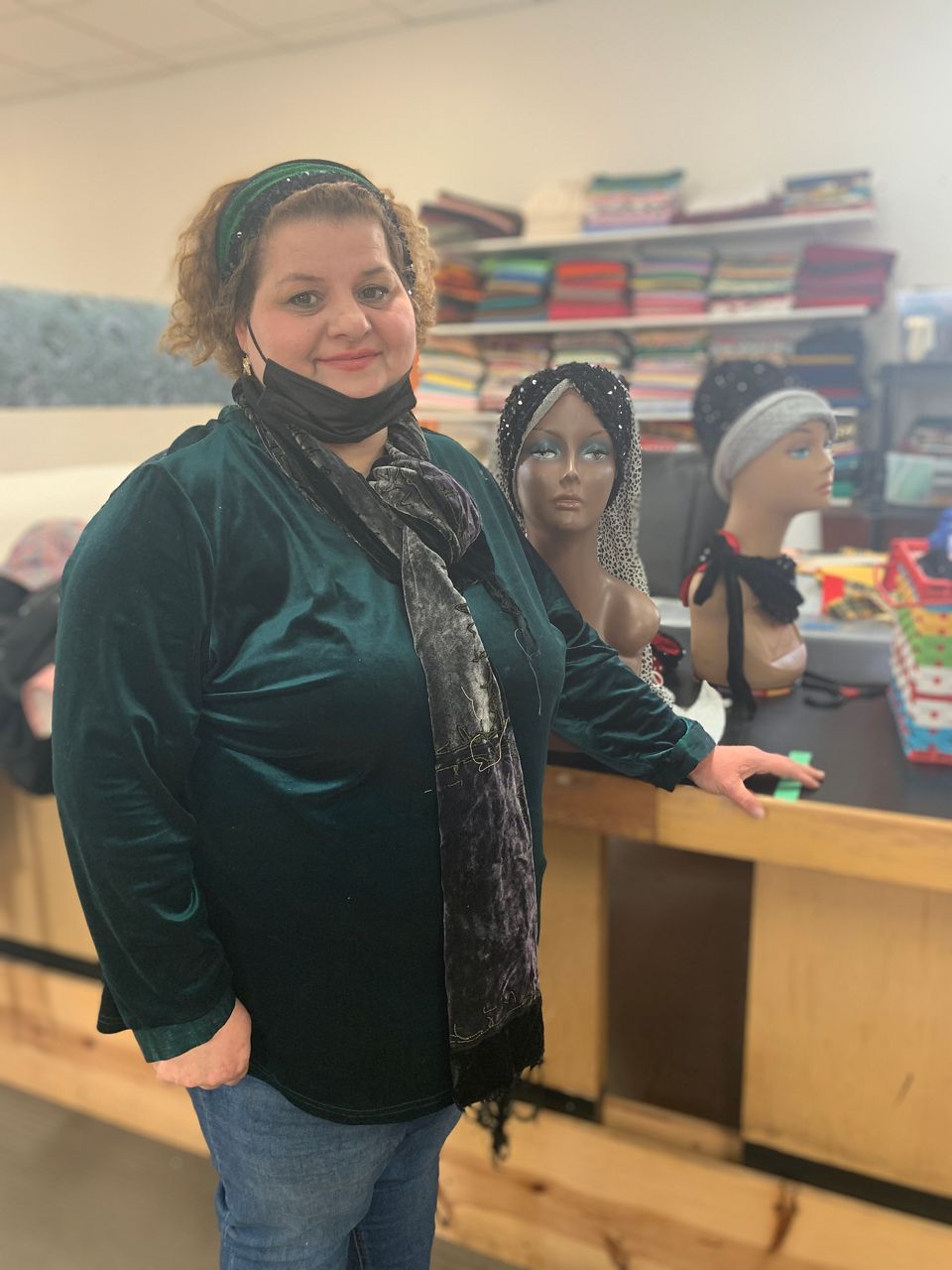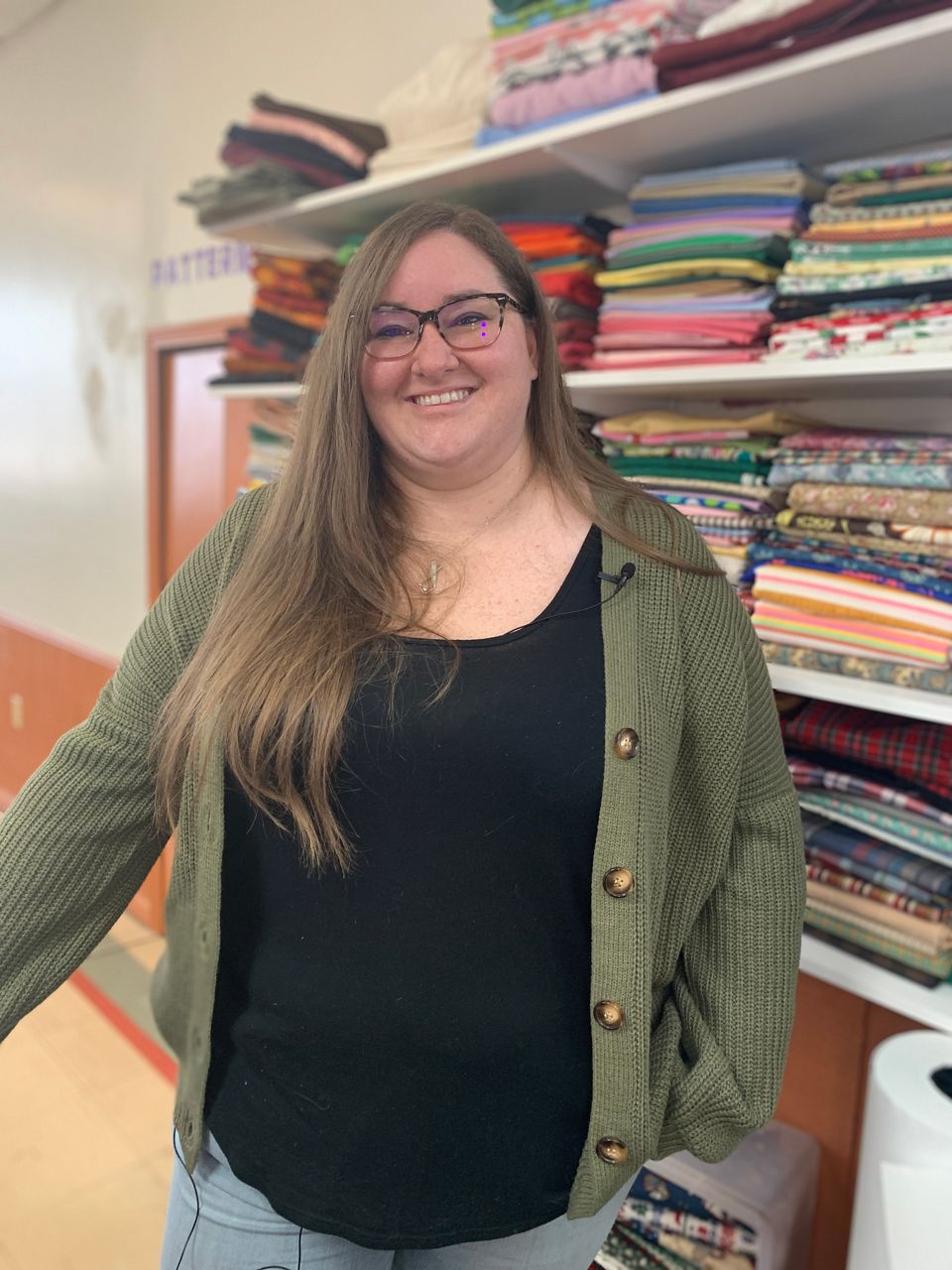CLEVELAND — Sewing has been Duha Odh’s passion her entire life. Odh is from Jordan, a country in the Middle East. She came to America in 1998 where she has worked as a tailor for many years. She moved to Cleveland six months ago and wants to pursue being a fashion designer.
“I love sewing so much. Yeah, this (is) my life,” said Odh. “My dream now, I'd be (a) designer for any company.”

Her friend told her about the sewing training facility, Esperanza Threads. The nonprofit teaches unemployed or low-income people the skills needed to get a job in Cleveland’s garment industry.
"We make pot holders, cozeys, tote bags, aprons and then Esperanza has its own line of some baby clothing and adult T-shirts," said Emily Tiell, executive director of Esperanza Threads.
Often, the trainees are immigrants or refugees with multiple barriers to employment. Esperanza Threads was founded by Sister Mary Eileen Boyle with the help of a ministry grant from the Ursuline Sisters of Cleveland.
“We work a lot with refugees, immigrants, different resettlement agencies, people coming out of rehabs and shelters looking for their second chance to get their new career going,” said Tiell. “If they're a low-income individual, we also provide them with a stipend. We know that taking two months of time to learn a new skill puts a hardship on the family. So our stipend is a small gift. It's not a whole lot. But we know that it'll help pay bills and keep them going while they're learning.”
Tiell’s main goal is to show these women that there are opportunities here. She helps them get their foot in the door.
“Everybody needs a chance,” said Tiell. “Everybody looks for that American dream, and that looks different to so many different people. But being in a nurturing environment, that we're going to go slow, that we don't care what your language is, we don't care what your background is, if you're coming out of rehab or anything like that, we want to show you that you can do something.”
Esperanza Threads offers one or two-month training programs. Most people coming into the program have never sewn on industrial machines. Upon completion of training, many of the students become employed in fairly-paid and sustainable jobs. The students are also provided with their own sewing machine to take home at the end of the training so they can continue to practice their new skill from home.
“They're going to learn the basics of industrial sewing, which many manufacturers around Cleveland are looking for. They'll learn how to thread the bobbin, we have several different types of machines in the building. So they'll get to work on each type of machine, which are all very similar to the ones that they'll see in a job,” said Tiell.
“They teach me. They have good teachers — smart. I like this place. Very nice,” said Odh. “Here, they helped me a lot. They opened, for me, the door.”

It’s giving women from all backgrounds a much-needed support system, opening up a world of possibilities and helping them stitch for a better future.
“Everybody (is) like family. They hold you and they forget you what you have a problem outside. You came in here ... just excited and feel comfortable. I love them. I love them so much,” said Odh. “I will be (a) fashion designer one day, you see.”
The next sewing training class will begin on April 4. Candidates for the program are low-income and are desiring to be trained in preparation to apply to work at an industrial sewing manufacturer. Anyone interested in applying for the next class should email Emily Tiell at emily@esperanzathreads.com.
Esperanza Threads is always in need of volunteers. The nonprofit does take donations of fabrics, but not sewing machines. You can purchase clothing and items crafted by someone who has gone through the training program on the nonprofit’s website. All proceeds go back into the sewing training program to help provide stipends to low-income students.
You can support Esperanza Threads at the nonprofit’s 8th annual fundraiser “A night at the Races” Friday, Feb. 25. The $50 Admission Price includes pasta, dinner and drinks, virtual horse racing, 50/50 raffle, raffle baskets as well as items for purchase. For more information visit here.



